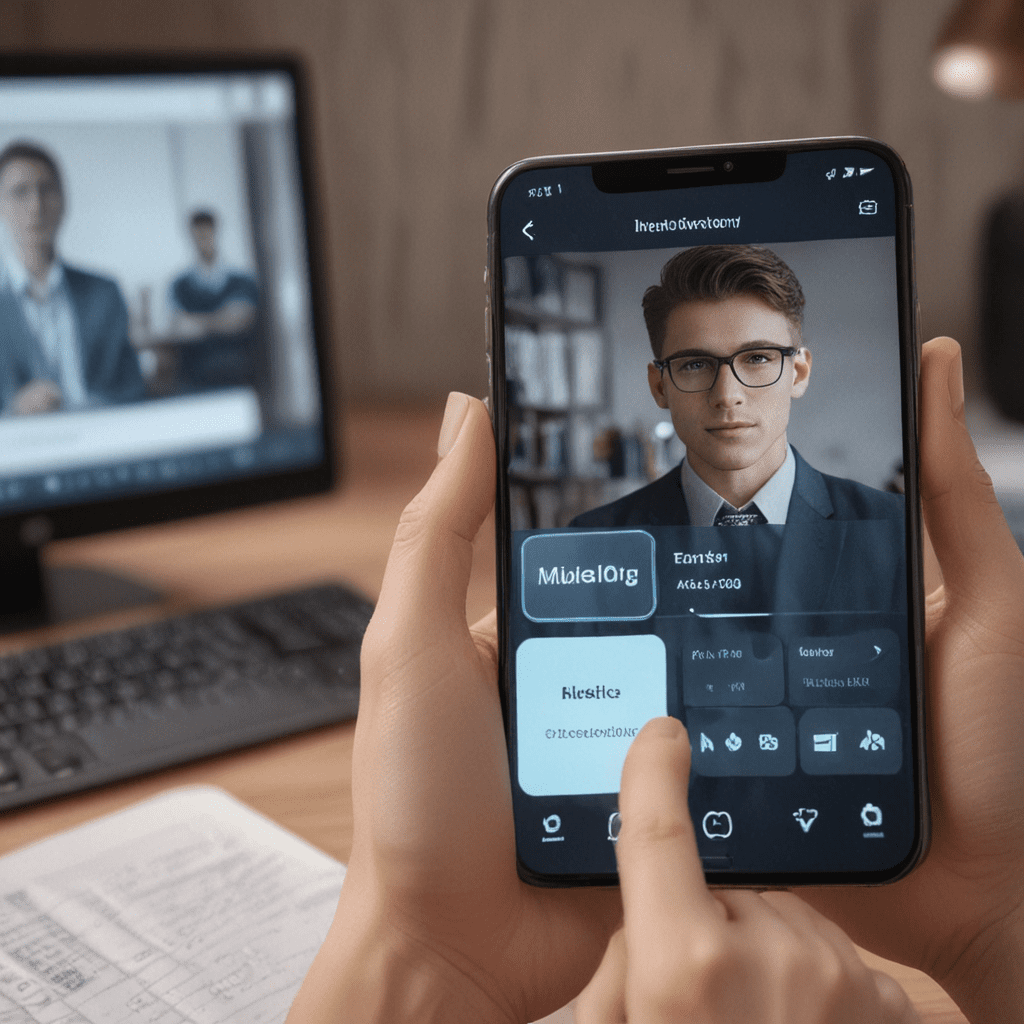
Introduction: The Rise of Virtual Healthcare and Remote Therapy
The recent years have witnessed a surge in virtual healthcare services, including remote therapy, as technology advances have facilitated seamless access to healthcare services from the comfort of one's own home. Remote therapy offers a convenient and accessible alternative to traditional in-person therapy sessions, expanding mental healthcare options for individuals who may face geographical, time, or cost barriers.
Benefits and Challenges of Mobile App-Based Remote Therapy
Mobile apps have emerged as a driver of remote therapy, providing an accessible and user-friendly platform for individuals to engage in therapy sessions. These apps offer numerous benefits, including flexibility, privacy, and personalized content. However, they also pose certain challenges, such as maintaining confidentiality and ensuring technological compatibility.
Key Innovations in Mobile Therapy Apps
Mobile therapy apps have undergone significant innovation, integrating advanced features that enhance user experience and treatment effectiveness. These include:
Real-time Video and Audio Conferencing: Apps enable real-time video and audio communication between therapists and clients, facilitating face-to-face interactions and a more personal connection.
Interactive Assessments and Tracking Tools: Apps incorporate interactive assessments and tracking tools that allow therapists to monitor client progress and tailor treatment plans accordingly. These features provide insights into client symptoms, behavior patterns, and treatment outcomes.
Gamification and Personalized Content: To make therapy more engaging, apps often incorporate gamification elements and personalized content that cater to individual client needs and preferences. By making therapy more enjoyable and interactive, apps improve adherence and motivation.
6. Integrations with Healthcare Systems
Mobile therapy apps are increasingly integrating with healthcare systems, allowing therapists to access and share client information securely. This integration with electronic health records (EHRs) improves continuity of care, facilitates interdisciplinary collaboration, and enables the exchange of treatment notes and progress updates. Additionally, apps are incorporating appointment scheduling and billing management features, streamlining administrative tasks and enhancing the overall efficiency of remote therapy delivery.
7. Innovative Technologies for Enhanced Engagement
Virtual reality (VR) and augmented reality (AR) technologies are gaining traction in remote therapy, offering immersive and interactive experiences that can enhance engagement and treatment outcomes. VR environments can simulate real-life scenarios, allowing clients to practice coping mechanisms in a safe and controlled setting. AR apps can overlay digital information onto the real world, providing therapists with additional tools for assessment and intervention. Biofeedback sensors and wearable devices are also being integrated into mobile therapy apps, enabling therapists and clients to monitor physiological data and provide personalized feedback.
8. Ethical Considerations
Mobile therapy apps raise ethical considerations related to data privacy and security. Ensuring the confidentiality of client information is paramount, and apps must comply with relevant privacy regulations and industry standards. Accessibility and equity are other important considerations, as remote therapy apps should be designed to accommodate diverse needs and devices. Therapists and app developers have a responsibility to address any potential barriers to access and ensure that remote therapy benefits everyone, regardless of their socioeconomic background or technological literacy.
9. The Future of Remote Therapy
The future of remote therapy looks promising, with emerging trends and technological advancements continuously shaping the landscape. Artificial intelligence (AI) and machine learning (ML) will play a vital role in automating administrative tasks, providing personalized treatment recommendations, and developing data-driven insights for improving treatment outcomes. Remote therapy apps will continue to integrate with other healthcare platforms, creating a comprehensive and connected healthcare ecosystem. Ongoing research and innovation in this field will further enhance the accessibility, effectiveness, and convenience of remote therapy, transforming mental healthcare delivery globally.
10. Conclusion: Transforming Mental Healthcare Through Mobile App Innovation
Mobile app-based remote therapy has emerged as a transformative force in mental healthcare, providing a convenient, effective, and accessible alternative to traditional therapy models. Key innovations in mobile therapy apps, including real-time video conferencing, interactive assessments, gamification, and integrations with healthcare systems, have significantly enhanced the user experience and treatment outcomes. The future of remote therapy is bright, with emerging technologies and ongoing research promising further advancements in personalized care, data-driven insights, and accessible mental healthcare for all.
Frequently Asked Questions (FAQs)
1. Are mobile therapy apps secure?
Yes, reputable mobile therapy apps prioritize data privacy and security, complying with industry standards and regulations.
2. Are mobile therapy apps effective?
Studies have shown that mobile therapy apps can be just as effective as traditional in-person therapy for various mental health conditions.
3. Can I use mobile therapy apps with my own therapist?
Some mobile therapy apps allow you to connect with your existing therapist, while others provide a marketplace for finding licensed therapists.
4. Are mobile therapy apps covered by insurance?
Insurance coverage for mobile therapy apps varies depending on the app and your insurance provider.
5. How do I choose the right mobile therapy app?
Consider factors such as the app's features, therapist credentials, user reviews, and compatibility with your device.


